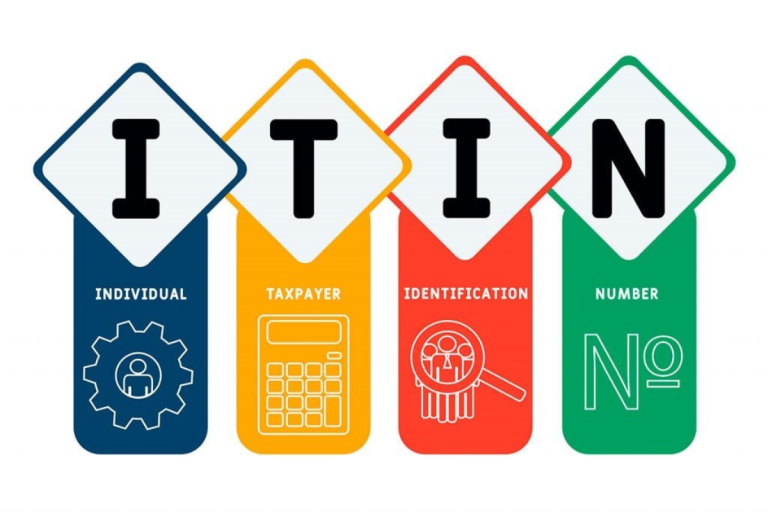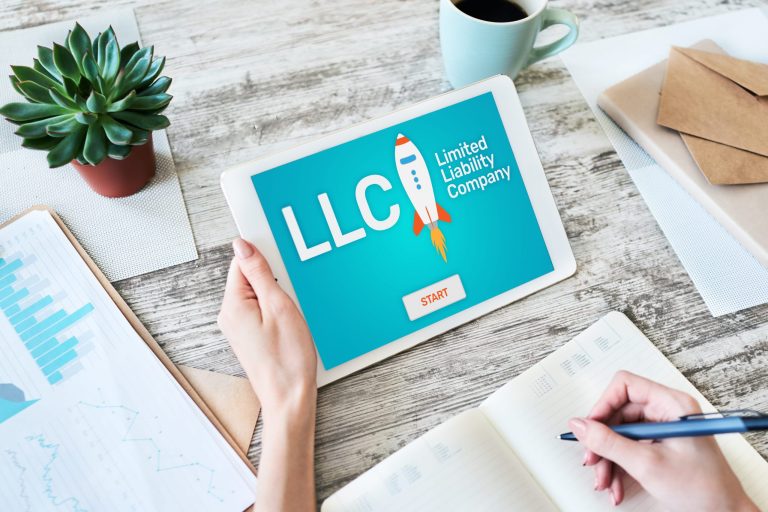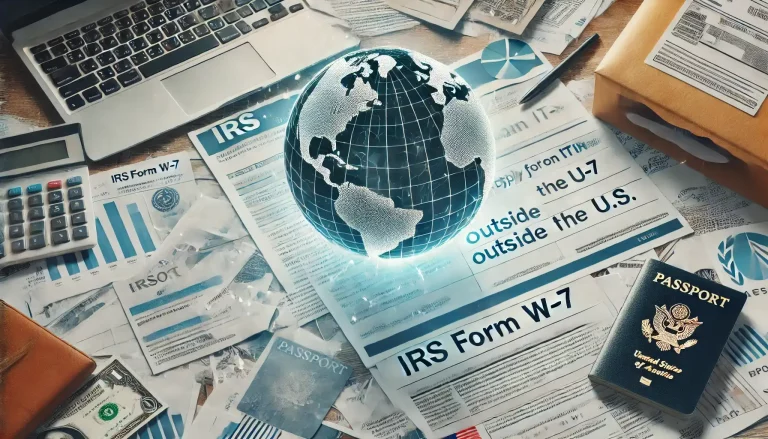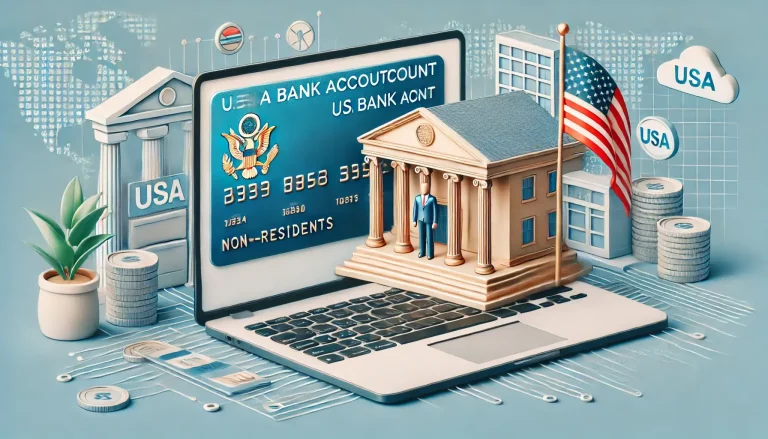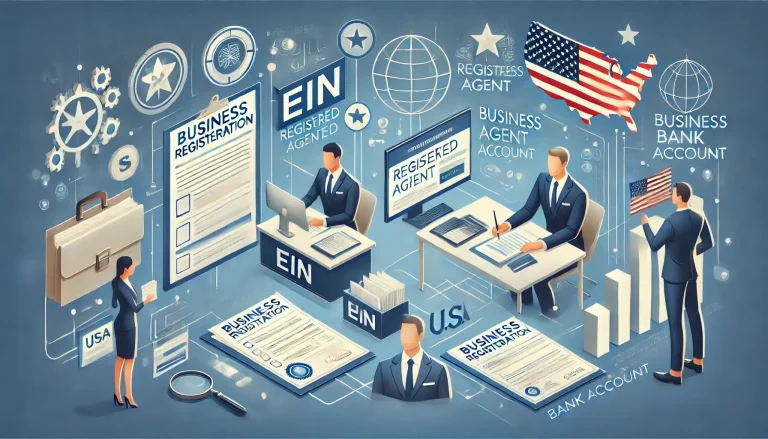How to Obtain an EIN for Your Business (9 Things)
Starting a business is an exciting yet challenging endeavor, and one critical step you can’t overlook is the need to obtain an EIN (Employer Identification Number). Often referred to as a Federal Tax Identification Number, obtaining an EIN is essential for a variety of business activities. This unique nine-digit number, issued by the IRS, is more than just a formality—it’s a crucial tool for ensuring your business complies with legal requirements, meets tax obligations, and accesses financial opportunities.
Whether you’re running a sole proprietorship, partnership, corporation, or non-profit organization, obtaining an EIN is necessary for handling key business functions. In this comprehensive guide, we’ll explore why obtaining an EIN is so important and how it plays a pivotal role in the success and operation of your business.

Get EIN to Open a Bank Account in the USA
Opening a business bank account is one of the first steps you should take after registering your business. A dedicated business bank account is not only a good practice for separating your personal and business finances, but it is also essential for legal and tax purposes. To open a business bank account in the USA, one of the key requirements is an EIN.
Why an EIN is Important for Opening a Bank Account:
- Legal Requirement: Most banks require an EIN before they can open a business account for your company. This requirement helps the bank ensure that the business is legally registered and that the account is being opened for legitimate business purposes.
- Business Credibility: Having a separate business bank account with an EIN enhances your company’s credibility. It shows that your business is a legitimate entity, separate from your personal finances.
- Ease of Transactions: A business bank account simplifies the management of your business finances. It allows you to accept payments, pay bills, and manage cash flow more effectively. Moreover, it makes tax reporting easier, as all business-related transactions are confined to one account.
Steps to Open a Business Bank Account:
- Choose the Right Bank: Research banks that offer business accounts tailored to your needs. Consider factors like fees, minimum balance requirements, and additional services such as business credit cards or loans.
- Gather Required Documentation: Besides your EIN, you’ll need to provide your business registration documents, ownership agreements, and possibly your personal identification.
- Submit Your Application: Once you have all the necessary documents, visit the bank or apply online. Ensure that you provide accurate information to avoid any delays in the process.
Case Study: A small e-commerce startup faced challenges in managing its finances using a personal bank account. Transactions became difficult to track, and the owner often mixed personal expenses with business ones. After obtaining an EIN and opening a business bank account, the startup experienced better financial management, clear separation of finances, and easier tax filing, which significantly contributed to its growth and success.
Benefits of Having a Business Bank Account:
- Professional Image: A business account allows you to issue checks in the company’s name, enhancing your professional image.
- Simplified Tax Reporting: Keeping personal and business finances separate helps in accurate tax reporting and reduces the risk of audits.
- Access to Financial Services: Banks often offer additional financial services to businesses, such as credit lines, which can be crucial for business expansion.

Get EIN to Apply for Business Permits
When you’re setting up a business, obtaining the necessary permits and licenses is crucial to operate legally. Depending on the nature of your business and your location, you may need various local, state, or federal permits. To apply for these permits, an Employer Identification Number (EIN) is often required.
Why You Need an EIN for Business Permits:
- Legal Compliance: Different types of businesses require different permits. For instance, if you’re opening a restaurant, you might need a food service permit, health permit, and liquor license. Each of these permits requires an EIN, as it is used by the authorities to track your business for tax and regulatory purposes.
- Simplifies the Application Process: When applying for multiple permits, having an EIN streamlines the process. It serves as a unique identifier for your business, ensuring that all your permits are linked to the correct entity.
- State and Local Requirements: In many states, an EIN is required to apply for certain permits and licenses. This is particularly important if you’re planning to operate across multiple states, as you’ll need to ensure compliance with each state’s specific regulations.
Types of Business Permits That May Require an EIN:
- Zoning Permits: Required to ensure your business location is approved for the type of business you’re conducting.
- Health Permits: Necessary for businesses involved in the preparation, storage, or sale of food products.
- Sales Tax Permits: Required if your business sells goods or services that are subject to sales tax.
- Fire Department Permits: For businesses that require inspection by the fire department, such as restaurants or any business storing flammable materials.
- Environmental Permits: Necessary for businesses involved in activities that may impact the environment, such as waste disposal or emissions.
Example: Let’s say you’re starting a construction company. You’ll likely need a general contractor’s license, which requires an EIN. Additionally, if your business handles any hazardous materials, you’ll need environmental permits that also require an EIN. Without this number, you can’t proceed with these essential applications, putting your business operations on hold.
Steps to Apply for Business Permits with an EIN:
- Identify the Required Permits: Research and identify all the permits required for your business based on its location and industry.
- Gather Necessary Information: Besides your EIN, you’ll need to provide business registration documents, personal identification, and sometimes detailed plans for your business operations.
- Submit Applications: With your EIN ready, you can apply for the necessary permits. Ensure that all applications are complete and accurate to avoid delays.
- Follow Up: Some permits may take time to process. Keep track of your applications and follow up if necessary to ensure everything is progressing smoothly.
Table: Common Business Permits and Requirements
| Permit Type | Description | EIN Required? |
|---|---|---|
| Zoning Permit | Approves the location for business operations | Yes |
| Health Permit | Required for businesses dealing with food or health-related services | Yes |
| Sales Tax Permit | Allows the collection of sales tax on goods and services | Yes |
| Fire Department Permit | Ensures compliance with fire safety regulations | Yes |
| Environmental Permit | Necessary for businesses impacting the environment | Yes |
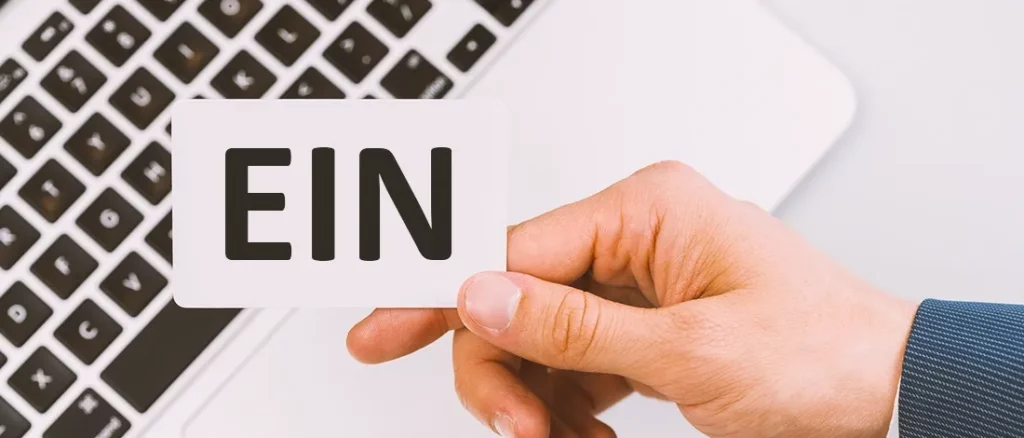
Get EIN to File Tax Return
Filing taxes is an inevitable part of running a business. Whether you’re a sole proprietor, partnership, corporation, or non-profit, you must report your earnings and pay taxes to the IRS. An Employer Identification Number (EIN) is essential for this process, serving as your business’s unique identifier for all tax-related matters.
Why an EIN is Critical for Filing Tax Returns:
- Required by the IRS: The IRS mandates that businesses use an EIN when filing tax returns. This number allows the IRS to track your business’s tax obligations and payments. Without an EIN, your tax filings would be incomplete, leading to delays or potential penalties.
- Ensures Accurate Reporting: An EIN helps ensure that your business’s income, expenses, and other financial data are accurately reported to the IRS. This accuracy is crucial for avoiding audits and maintaining compliance with federal tax laws.
- Separation of Personal and Business Taxes: If you’re a sole proprietor, using an EIN rather than your Social Security Number (SSN) for tax purposes can provide an additional layer of security. It also clearly distinguishes your business finances from your personal finances, which simplifies tax filing and reduces the risk of errors.
Types of Taxes That Require an EIN:
- Income Tax: Businesses must report their income to the IRS, and the EIN is used to track these reports.
- Employment Taxes: If you have employees, you are required to withhold and pay Social Security, Medicare, and unemployment taxes on their behalf. These taxes must be filed using your EIN.
- Excise Taxes: Some businesses, particularly those in manufacturing or transportation, may need to pay excise taxes. The EIN is used to report these taxes to the IRS.
- Estimated Taxes: Businesses that expect to owe $1,000 or more in taxes for the year are required to make quarterly estimated tax payments. These payments are tracked using your EIN.
Case Study: Consider a small digital marketing agency that initially filed taxes using the owner’s SSN. As the business grew, so did its tax obligations. The owner decided to obtain an EIN and use it for tax filings. This change not only streamlined the tax process but also protected the owner’s personal information and provided clearer financial records, making it easier to identify tax deductions and credits.
Steps to File Tax Returns with an EIN:
- Obtain an EIN: If you haven’t already, apply for an EIN through the IRS website. The application is straightforward, and you’ll receive your EIN immediately upon completion.
- Choose the Correct Tax Forms: Depending on your business structure, you’ll need to file different tax forms. For example, sole proprietors file a Schedule C along with their personal tax return, while corporations file Form 1120.
- Prepare Financial Statements: Gather all necessary financial documents, including income statements, balance sheets, and receipts for business expenses. This information will be essential when filling out your tax forms.
- File Your Return: Use your EIN on all tax forms and ensure that the information provided is accurate. You can file taxes electronically or by mail, depending on your preference and the forms you are using.
- Keep Records: Maintain copies of your tax returns and all supporting documents for at least three years. This record-keeping is crucial in case of an audit.
Table: Common Tax Forms and EIN Usage
| Tax Form | Purpose | EIN Required? |
|---|---|---|
| Form 1040 Schedule C | Profit or loss from a sole proprietorship | Yes |
| Form 1065 | Partnership income tax return | Yes |
| Form 1120 | Corporation income tax return | Yes |
| Form 941 | Employer’s quarterly federal tax return | Yes |
| Form 720 | Quarterly federal excise tax return | Yes |

Get EIN to Hire Employees
Hiring employees is a significant milestone for any business, marking its growth and expansion. However, with this growth comes the responsibility of managing payroll, taxes, and employment regulations. An Employer Identification Number (EIN) is crucial for businesses looking to hire employees, as it serves as the unique identifier for all employment-related activities.
Why an EIN is Essential for Hiring Employees:
- Payroll Management: When you hire employees, you’re required to withhold federal income tax, Social Security, and Medicare taxes from their wages. These withholdings, along with the employer’s contribution to Social Security and Medicare, are reported and paid to the IRS using your EIN. Without an EIN, you cannot legally manage payroll or meet your tax obligations as an employer.
- Federal and State Tax Reporting: The EIN is required to file employment tax returns with the IRS. Additionally, state and local governments may require the EIN for state income tax withholding, unemployment insurance, and workers’ compensation filings.
- Filing W-2 Forms: At the end of each tax year, businesses must provide their employees with a W-2 form, which details the employee’s earnings and the taxes withheld. This form must include the employer’s EIN, ensuring that the IRS can track the taxes paid by both the employer and the employee.
- Compliance with Employment Laws: An EIN is necessary to comply with various federal and state employment regulations, including the requirement to verify the identity and employment eligibility of your employees through Form I-9.
Steps to Hire Employees Using an EIN:
- Obtain Your EIN: If you haven’t already done so, apply for an EIN through the IRS website. This step is crucial before you can proceed with hiring employees.
- Register for State Employment Taxes: In addition to federal taxes, you’ll need to register with your state’s tax agency to withhold state income taxes and pay unemployment insurance. This registration typically requires your EIN.
- Set Up Payroll: Choose a payroll system that suits your business size and needs. Ensure that the system is set up to withhold the correct amount of federal and state taxes, and that it uses your EIN for all tax filings.
- Complete Hiring Paperwork: Ensure that each new employee completes Form W-4, which is used to determine the amount of federal income tax to withhold. You’ll also need to submit Form I-9 to verify employment eligibility.
- File Employment Tax Returns: Use your EIN to file quarterly and annual employment tax returns with the IRS and your state tax agency. This includes Form 941 for federal taxes and any equivalent state forms.
Case Study: A small retail business expanded and hired its first few employees. Initially, the owner managed payroll manually, using their Social Security Number. However, as the business grew, managing payroll became increasingly complex, and the risk of errors increased. After obtaining an EIN, the business transitioned to a more efficient payroll system, which simplified tax reporting, ensured compliance with federal and state regulations, and protected the owner’s personal information.
List: Key Documents Required When Hiring Employees
- Form W-4: Employee’s withholding allowance certificate.
- Form I-9: Employment eligibility verification.
- Form W-2: Wage and tax statement (issued annually).
- State Withholding Forms: Varies by state, used for state income tax withholding.
- Payroll Records: Detailed records of employee earnings, tax withholdings, and contributions.
Table: Employer Responsibilities Using an EIN
| Responsibility | Description | EIN Required? |
|---|---|---|
| Withhold Federal Taxes | Withhold and pay federal income, Social Security, and Medicare taxes | Yes |
| File Form 941 | Employer’s quarterly federal tax return | Yes |
| Issue Form W-2 | Annual wage and tax statement for employees | Yes |
| Register for State Taxes | Register for state income tax withholding and unemployment insurance | Yes |
| Verify Employment Eligibility | Complete Form I-9 for each new hire | Yes |

Get EIN to Start a Corporation or Partnership
Forming a corporation or partnership is a significant step in the life of a business, and an Employer Identification Number (EIN) plays a crucial role in this process. Whether you’re incorporating your business or establishing a partnership, an EIN is required to legally structure and operate your entity. It serves as the official identifier for your business in all dealings with the IRS and other government agencies.
Why an EIN is Necessary for Corporations and Partnerships:
- Legal Formation: When you form a corporation or partnership, you must register your business with the IRS and your state’s Secretary of State. An EIN is required during this registration process. It acts as the equivalent of a Social Security Number for your business, making it possible for the entity to open bank accounts, sign contracts, and pay taxes.
- Tax Reporting: Corporations and partnerships are required to file separate tax returns from their owners. For corporations, this includes corporate income tax, while partnerships file an informational return. The EIN is used to track these filings and ensure compliance with federal tax laws.
- Opening Business Accounts: Banks require an EIN to open a business checking account for corporations and partnerships. This helps in maintaining clear financial records and separating personal and business finances, which is crucial for legal and tax purposes.
- Compliance with State Laws: Most states require corporations and partnerships to obtain an EIN before they can be legally recognized. This number is used for state tax reporting, registering for sales tax permits, and applying for state licenses.
Steps to Start a Corporation or Partnership Using an EIN:
- Choose Your Business Structure: Decide whether you want to form a corporation (such as an S-corporation or C-corporation) or a partnership (general partnership, limited partnership, etc.).
- Register Your Business: File the necessary formation documents with your state’s Secretary of State. For corporations, this typically involves submitting Articles of Incorporation. For partnerships, you might need to file a Partnership Agreement or a Certificate of Limited Partnership.
- Apply for an EIN: After registering your business with the state, apply for an EIN through the IRS website. You’ll need this number to proceed with the next steps.
- Open a Business Bank Account: With your EIN, you can open a bank account specifically for your business. This is critical for managing your finances, paying expenses, and collecting payments from clients.
- Register for Taxes: Depending on your business type and location, you’ll need to register for various state and federal taxes, such as income tax, sales tax, and employment taxes, using your EIN.
Case Study: A group of three friends decided to start a tech company as an S-corporation. They first registered the corporation with their state, then applied for an EIN. This EIN allowed them to open a corporate bank account, apply for business credit, and register for federal and state taxes. The EIN also enabled them to hire employees and manage payroll, making it easier to scale the business. The structure of the S-corporation, combined with the EIN, provided them with tax advantages, limited liability, and a clear separation between personal and business finances.
List: Key Steps for Starting a Corporation or Partnership
- Select Business Structure: Choose between a corporation or partnership based on your business needs.
- File Formation Documents: Submit Articles of Incorporation or a Partnership Agreement to your state’s Secretary of State.
- Apply for EIN: Obtain your EIN from the IRS.
- Open a Business Bank Account: Use the EIN to open an account and manage business finances.
- Register for Taxes: Ensure all federal and state tax obligations are met using your EIN.
- Comply with Ongoing Filing Requirements: Corporations and partnerships often have annual filing requirements that must be maintained.
Table: EIN Requirements for Different Business Structures
| Business Structure | EIN Requirement | Purpose |
|---|---|---|
| S-Corporation | Yes | Tax reporting, payroll management, legal contracts |
| C-Corporation | Yes | Corporate income tax, opening business accounts |
| General Partnership | Yes | Filing informational returns, managing business taxes |
| Limited Partnership | Yes | Registering with the state, managing payroll |
| Limited Liability Company (LLC) | Yes | If treated as a corporation or with employees |

You Can Withhold Taxes
One of the key responsibilities of any business owner, especially when you have employees, is the withholding of taxes. Withholding taxes refers to the portion of an employee’s wages that is deducted by the employer and sent directly to the government as partial payment of income tax. This process ensures that taxes are paid on time and in full. An Employer Identification Number (EIN) is crucial in this process as it is required for all tax withholding and reporting activities.
Importance of EIN in Withholding Taxes:
- Mandatory for Employers: The IRS requires businesses to have an EIN to withhold federal income taxes, Social Security taxes, and Medicare taxes from their employees’ paychecks. Without an EIN, a business cannot legally withhold or remit these taxes, leading to potential legal issues and fines.
- Payroll Management: An EIN is used to identify your business when you report the taxes you’ve withheld from your employees’ wages. This reporting occurs quarterly via IRS Form 941 and annually via Form W-2, both of which require an EIN.
- Employee Confidence: Having an EIN and properly withholding taxes helps build trust with your employees. It demonstrates that you are a legitimate employer who is following federal laws and ensuring that their tax obligations are being met.
- Compliance with Federal and State Laws: In addition to federal taxes, many states require employers to withhold state income taxes. The EIN is often used in this process, ensuring compliance with state regulations. Some local governments may also require tax withholding, and the EIN is used for these filings as well.
Steps to Withhold Taxes Using an EIN:
- Obtain an EIN: Ensure you have an EIN before hiring employees. This is necessary for all payroll and tax withholding activities.
- Set Up a Payroll System: Implement a payroll system that can accurately calculate and withhold the correct amount of federal and state taxes from each paycheck. Your EIN will be used to identify your business in all tax filings.
- File IRS Form 941 Quarterly: This form reports the amount of federal income tax, Social Security tax, and Medicare tax that you’ve withheld from your employees’ wages. It must be filed every quarter using your EIN.
- File Form W-2 Annually: At the end of each year, provide your employees with Form W-2, which details their earnings and the taxes withheld. You’ll also submit copies of this form to the IRS, using your EIN.
- Make Regular Tax Deposits: Depending on the size of your payroll, you may need to deposit withheld taxes on a monthly or semi-weekly basis. These deposits are made using your EIN.
Case Study: A small consulting firm that initially managed its payroll manually faced challenges in keeping up with tax deadlines. After obtaining an EIN and adopting a payroll system, the firm was able to automate tax withholding and filing, ensuring compliance with IRS regulations. This not only saved the business time but also avoided costly penalties for late or incorrect tax filings.
List: Key Forms for Tax Withholding Using an EIN
- Form W-4: Employees fill out this form to determine the amount of federal income tax to be withheld from their paychecks.
- Form 941: Employer’s quarterly federal tax return, used to report federal income tax, Social Security, and Medicare taxes.
- Form W-2: Wage and tax statement issued to employees and the IRS at the end of each year.
- State Tax Forms: Varies by state, used for withholding and reporting state income taxes.
Table: Tax Withholding Requirements and EIN Usage
| Tax Type | Frequency | EIN Required? | Filing Form |
|---|---|---|---|
| Federal Income Tax | Quarterly | Yes | Form 941 |
| Social Security and Medicare Tax | Quarterly | Yes | Form 941 |
| State Income Tax | Varies by state | Yes | State forms |
| Unemployment Tax | Annually | Yes | Form 940 |

Get EIN to Apply for a Credit Card
Applying for a business credit card is a strategic move for any entrepreneur or small business owner. A business credit card not only provides access to funds for day-to-day operations but also helps build business credit, manage expenses, and separate personal and business finances. To apply for a business credit card, an Employer Identification Number (EIN) is often required, especially for corporations and partnerships.
Why an EIN is Important for Business Credit Cards:
- Building Business Credit: One of the primary reasons to get a business credit card is to build your business’s credit history. Using an EIN instead of your Social Security Number (SSN) allows your business to establish its own credit profile, independent of your personal credit. This is crucial for obtaining larger loans or better financing terms in the future.
- Separating Personal and Business Finances: By using a business credit card linked to your EIN, you can keep your personal and business expenses separate. This separation simplifies accounting, tax reporting, and financial management, and also provides liability protection in case of audits or legal issues.
- Qualifying for Business Credit: Many credit card issuers require an EIN when you apply for a business credit card. The EIN helps the issuer assess the creditworthiness of your business rather than relying solely on your personal credit score. This is particularly beneficial if your personal credit is not strong, but your business has a solid financial foundation.
- Access to Business-Specific Rewards: Business credit cards often offer rewards and benefits tailored to business owners, such as cashback on office supplies, travel perks, and discounts on business services. Having an EIN allows you to access these specialized credit card options.
Steps to Apply for a Business Credit Card Using an EIN:
- Obtain an EIN: Before applying for a business credit card, ensure you have an EIN. You can obtain one through the IRS website if you haven’t already.
- Research Credit Card Options: Look for business credit cards that offer rewards and benefits aligned with your business needs. Consider factors like interest rates, fees, credit limits, and reward programs.
- Prepare Your Application: Gather necessary information, including your EIN, business name, address, revenue, and other financial details. Some issuers may also request your SSN, especially for newer businesses.
- Submit the Application: Apply for the business credit card using your EIN. This application can usually be completed online or in person at a bank or credit card issuer’s office.
- Use the Card Responsibly: Once approved, use the business credit card to manage expenses and build credit. Be sure to pay the balance on time to avoid interest charges and maintain a good credit standing.
Case Study: A small IT consulting firm needed to purchase software and hardware regularly. Initially, the owner used a personal credit card for these expenses, which complicated accounting and made it difficult to track business expenses accurately. After obtaining an EIN and applying for a business credit card, the firm was able to streamline expense management, earn rewards on business purchases, and build a strong business credit profile. This, in turn, made it easier to secure a business loan for expansion.
List: Key Benefits of Using a Business Credit Card with an EIN
- Separation of personal and business expenses
- Access to higher credit limits
- Opportunity to build business credit
- Eligibility for business-specific rewards and perks
- Simplified tax reporting and accounting
Table: Comparison of Business Credit Cards Based on EIN Usage
| Credit Card | Rewards Program | Annual Fee | EIN Requirement | Interest Rate |
|---|---|---|---|---|
| Business Platinum Card | Travel rewards, cashback | $295 | Yes | 17.49% APR |
| Chase Ink Business Cash | 5% cashback on office supplies | $0 | Yes | 13.24% APR |
| Capital One Spark Cash | 2% cashback on all purchases | $95 (waived first year) | Yes | 18.99% APR |
| American Express Blue Business | 0% intro APR, rewards points | $0 | Yes | 14.74% – 20.74% APR |

Get EIN to Apply for Loans
Securing a loan is often a critical step in growing or sustaining a business. Whether it’s for expansion, purchasing equipment, or managing cash flow, loans provide the necessary capital to take your business to the next level. An Employer Identification Number (EIN) is a vital component of the loan application process, especially for businesses looking to separate their financial identity from that of the owners.
Why an EIN is Crucial for Business Loans:
- Establishing Business Creditworthiness: Lenders use your EIN to evaluate your business’s credit history and financial health. This helps them determine your eligibility for a loan and the terms that may apply. A strong business credit profile, separate from your personal credit, can lead to better interest rates and loan conditions.
- Legal and Financial Separation: Using an EIN when applying for a loan ensures that the debt is tied to the business, not to you personally. This separation protects your personal assets in the event of business financial difficulties and provides clarity in financial reporting.
- Access to Larger Loan Amounts: Lenders are often more willing to offer larger loan amounts to businesses with established EINs because it shows that the business is properly structured and has a distinct financial identity. This is especially true for corporations, partnerships, and LLCs.
- Streamlining the Application Process: Most financial institutions require an EIN as part of the loan application process for businesses. Having an EIN simplifies the application process and speeds up approval times, as it allows lenders to quickly access your business’s financial information.
Steps to Apply for a Loan Using an EIN:
- Obtain an EIN: Before applying for a business loan, make sure you have an EIN. This number will be required during the application process.
- Prepare Financial Documents: Gather necessary financial documents, including tax returns, income statements, balance sheets, and cash flow statements. Your EIN will be used on these documents to identify your business.
- Research Loan Options: Look for loans that meet your business needs. Consider factors like interest rates, repayment terms, and the amount of funding available. Some common loan types include SBA loans, term loans, and lines of credit.
- Submit the Loan Application: Complete the loan application, ensuring that your EIN is included wherever required. Be prepared to provide additional documentation, such as business plans and financial projections.
- Review and Accept Loan Terms: Once approved, review the loan terms carefully. Ensure that the interest rate, repayment schedule, and other conditions are favorable for your business. After agreeing to the terms, the loan funds will be disbursed to your business account.
Case Study: A small retail business owner wanted to expand their operations by opening a new store location. To fund the expansion, the owner applied for an SBA loan using the business’s EIN. The EIN allowed the owner to apply for the loan under the business name, separate from personal finances. With the loan, the business was able to cover the costs of leasing the new location, purchasing inventory, and marketing the grand opening. The business successfully expanded, and the loan was repaid on favorable terms, thanks to the strong business credit profile established with the EIN.
List: Common Types of Business Loans Requiring an EIN
- SBA Loans: Government-backed loans with favorable terms for small businesses.
- Term Loans: Lump sum loans with fixed interest rates and repayment schedules.
- Lines of Credit: Flexible borrowing options with revolving credit limits.
- Equipment Financing: Loans specifically for purchasing business equipment.
- Invoice Financing: Loans based on outstanding invoices.
Table: Comparison of Business Loan Types
| Loan Type | Interest Rates | Loan Amount Range | Repayment Term | EIN Required? |
|---|---|---|---|---|
| SBA Loan | 6% – 13% | Up to $5 million | 5 – 25 years | Yes |
| Term Loan | 7% – 30% | $5,000 – $500,000 | 1 – 5 years | Yes |
| Line of Credit | 8% – 24% | $10,000 – $500,000 | Revolving | Yes |
| Equipment Financing | 4% – 20% | Up to $500,000 | 3 – 7 years | Yes |
| Invoice Financing | 10% – 70% (APR) | 80% – 90% of invoice value | Until invoice is paid | Yes |

Get EIN to Create a Trust, Estate, or Non-Profit
Creating a trust, estate, or non-profit organization involves specific legal and financial requirements. An Employer Identification Number (EIN) is essential for these entities, as it serves as their identification number for various purposes, including tax reporting, financial transactions, and compliance with legal obligations.
Why an EIN is Important for Trusts, Estates, and Non-Profits:
- Trusts: An EIN is necessary for trusts, especially if they have income or are required to file a tax return. It allows the trust to manage and report income independently of the grantor’s Social Security Number (SSN). The EIN is used for tax filings, opening bank accounts, and conducting other financial transactions related to the trust.
- Estates: When administering an estate, an EIN is used to manage the estate’s finances, pay debts, and file estate tax returns. The EIN ensures that the estate’s financial activities are distinct from those of the deceased’s personal finances.
- Non-Profits: For non-profit organizations, an EIN is crucial for tax-exempt status, opening bank accounts, and applying for grants. It helps in establishing the organization as a separate legal entity and is used in all dealings with the IRS and state agencies.
Steps to Obtain an EIN for Trusts, Estates, and Non-Profits:
- Obtain an EIN: Apply for an EIN from the IRS. For trusts and estates, this is usually done after the trust is established or the estate is opened. Non-profits should obtain an EIN as part of their formation process.
- File Necessary Documentation: For trusts and estates, file the required tax returns using the EIN. For non-profits, ensure you submit the necessary paperwork to the IRS to obtain 501(c)(3) status or other applicable exemptions.
- Open Bank Accounts: Use the EIN to open separate bank accounts for the trust, estate, or non-profit. This helps in managing finances and ensures that funds are used for their intended purposes.
- Apply for Grants and Funding: Non-profits can use the EIN to apply for grants and other forms of funding. It’s also used when reporting financial activities and filing annual returns.
- Maintain Compliance: Ensure that you meet all ongoing compliance requirements, including filing annual returns and maintaining accurate financial records. The EIN will be used in all correspondence with the IRS and other regulatory agencies.
Case Study: A charitable organization focused on environmental conservation was established as a non-profit. The founders obtained an EIN to set up the organization’s bank accounts and apply for tax-exempt status. The EIN allowed them to secure grants and donations, manage funds properly, and maintain compliance with IRS regulations. The non-profit was able to effectively operate and contribute to environmental causes, thanks to the EIN that facilitated its financial and legal processes.
List: Key Uses of EIN for Trusts, Estates, and Non-Profits
- Trusts: Filing trust tax returns, managing income, and opening bank accounts.
- Estates: Paying estate taxes, managing financial transactions, and filing estate tax returns.
- Non-Profits: Applying for tax-exempt status, opening bank accounts, and applying for grants.
Table: EIN Requirements for Different Entities
| Entity Type | EIN Requirement | Purpose |
|---|---|---|
| Trust | Yes | Filing tax returns, managing income, opening accounts |
| Estate | Yes | Managing finances, paying debts, filing returns |
| Non-Profit Organization | Yes | Obtaining tax-exempt status, applying for grants |
Conclution
In conclusion, obtaining an EIN is a fundamental step for managing trusts, estates, and non-profit organizations. It ensures proper tax reporting, financial management, and compliance with legal requirements. Whether you are setting up a trust, managing an estate, or running a non-profit, the EIN provides the necessary structure for effective operation and financial transparency.
Frequently Asked Questions (FAQs)
What is an EIN and why is it important for businesses?
An Employer Identification Number (EIN) is a unique nine-digit number assigned by the IRS to identify a business entity. It is important because it is used for various purposes, including tax reporting, opening bank accounts, applying for loans, and managing employee payroll. It separates the business’s financial identity from the owner’s personal identity.
How can I obtain an EIN for my business?
You can obtain an EIN by applying online through the IRS website, by mail using Form SS-4, or by fax. The online application is the fastest method and provides the EIN immediately upon completion. If you are an international applicant or have specific needs, you might need to apply by mail or fax.
Do I need an EIN if I’m a sole proprietor?
While sole proprietors without employees may use their Social Security Number (SSN) for tax purposes, obtaining an EIN can still be beneficial. It helps in separating personal and business finances and can be required when opening a business bank account or applying for certain licenses and permits.
How does having an EIN benefit my business in terms of applying for a loan?
An EIN helps establish your business’s credit profile, separate from your personal credit. This can improve your chances of securing a loan, as lenders use the EIN to review the business’s creditworthiness and financial health. It also facilitates the application process by identifying the business as a separate legal entity.
Can I use my EIN for personal tax returns?
No, an EIN is used solely for business-related tax purposes. Personal tax returns should be filed using your Social Security Number (SSN). The EIN ensures that business taxes and personal taxes are kept separate.
What is the difference between an EIN and a Social Security Number (SSN)?
An EIN is used to identify business entities, while an SSN is used to identify individuals. Businesses use EINs for tax reporting and other legal purposes, whereas SSNs are used for personal tax reporting and identification.
Is an EIN required for a non-profit organization?
Yes, an EIN is required for non-profit organizations. It is necessary for applying for tax-exempt status, opening bank accounts, and applying for grants. It helps establish the organization’s legal identity and manage its financial activities.
Do trusts and estates need an EIN?
Yes, trusts and estates typically need an EIN. For trusts, the EIN is used to manage and report income. For estates, the EIN is required to file estate tax returns and manage financial transactions. It helps in keeping the estate’s finances separate from the deceased’s personal finances.
Can I use an EIN to apply for a business credit card?
Yes, an EIN is required when applying for a business credit card. It helps the credit card issuer assess the creditworthiness of the business and allows for separation of personal and business finances.
How do I update or change information related to my EIN?
To update or change information related to your EIN, you must notify the IRS. You can do this by submitting Form 8822-B, Change of Address or Responsible Party – Business, or by contacting the IRS directly if the changes are significant or involve legal changes to your business structure.
What should I do if I lose my EIN?
If you lose your EIN, you can retrieve it by referring to previous tax filings, bank statements, or correspondence from the IRS. If you are unable to locate it, you can contact the IRS Business & Specialty Tax Line for assistance.
Can a business have more than one EIN?
In most cases, a business will have only one EIN. However, if a business undergoes significant changes such as restructuring or changing its legal form (e.g., from a sole proprietorship to a corporation), it may need a new EIN. Consult with the IRS or a tax professional if you are unsure about your situation.


